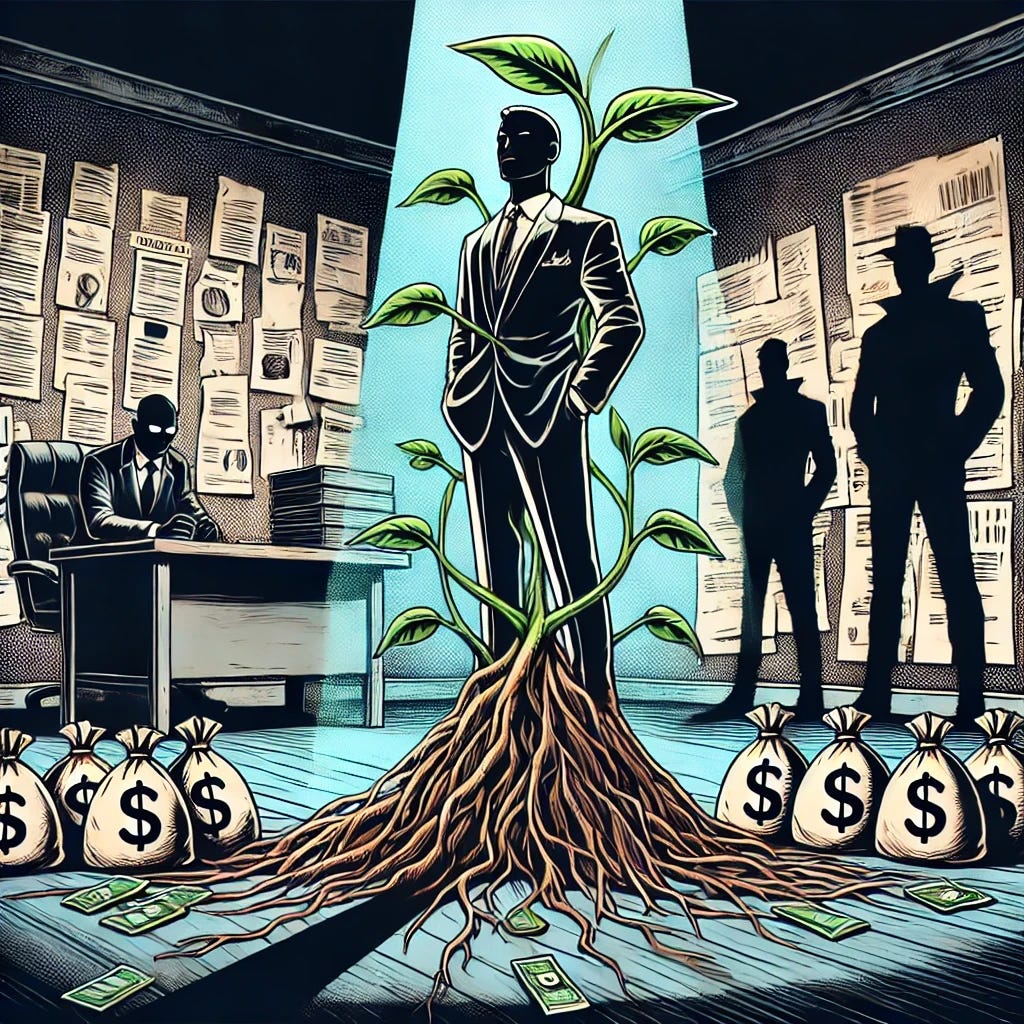Grift and Graft
Whenever I heard the word grift or grifter, my mind travels to an era with the likes of Charles Ponzi. It’s the era of cement sneakers and flappers, when new technology like radio was leading the way for a wild stock market bull run.
That association makes sense, because the word came into common usage around that time. There was a considerable surge in organized crime with the rise of Chicago’s gangland scene, led by Al Capone, and reporters needed a way to differentiate more petty crimes from these more organized (and brutal) endeavors.
Grift was a natural fit for this need. It wasn’t for the Al Capones of the world, but instead for the petty criminals who would sell you ten fake stock certificates before disappearing from town the next day.
It’s also notable that the Romani word grip means to take, and it’s entirely possible that this word developed first in the American criminal underworld on this basis, before being adopted by newspapers and the like. The fact that grip was already in the English vocabulary certainly would have helped to introduce this new variant.
Over time, the word has come to mean a non-violent financial crime, but it no longer has to be such a petty crime in order to be considered grift. Today, we include the very biggest and boldest scams as grifts.
Graft, by contrast, is a much older word than grift. If you hear the word, you might imagine a bigger operation than a simple con, and that makes a great deal of sense when we think about the origin of the word.
In biology, grafting refers to joining two separate tissues together, so that they can then continue to grow as one unit. This is a complex operation, to say the least: botanists have to make sure the scion (the upper part) of one plant will affix itself to the rootstock (the lower part) of another plant. If the tissues don’t align properly, the graft won’t take.
This is the way genetic engineering has operated for centuries, and it’s one way we can cultivate new varieties of plants. It’s also how plants are cloned, so if we want to preserve specific traits in a plant (like surviving a harsh winter, for instance), we might try to preserve that data and make sure its offspring are more hearty.
You’ve probably heard of skin grafts, too. Incredibly, a donor’s skin tissue can sync up with a recipient’s tissue and begin to grow back on its own. The same thing can happen with our internal organs too, but that’s a lot more tricky.
Clearly, a graft is a complex operation, but why did folks begin to use it in a criminal context? Why did grift and graft become such close cousins?
We need to look at the history here. New York’s infamous Tammany Hall probably helped more to spread this idea than any other institution in the world at the time, and journalists were eager to describe the complexity of the corrupt network the bosses used.
That’s because there were people being implanted into the political scene who simply didn’t belong there. They were criminals with the intention of serving their boss, not politicians with the purpose to serve the people. These scions had been carefully snipped from the criminal world and grafted onto the rootstock of the American political machine.
Ultimately, both grift and graft involve financial crimes, and both words have converged upon more similar meanings over the last century. However, grift still implies more of a small-scale operation, while graft involves a more complex implantation. Still, both words bring my mind straight back to the roaring 20s, to a more naive era before the Great Depression and the Second World War.
Where does your mind go when you hear these words? Do they have different meanings than the ones I’ve described?




Luckily, we've since moved on from those corrupt ways and no longer have grifters as politicians or---Capone forbid---Presidents.
My wife calls some people we know the Grifters for reasons I won't go into and it always makes me giggle. It's such a cool word and the shoe fits. Did you see the movie with Annette Bening & John Cusack? That one might be worth a rewatch